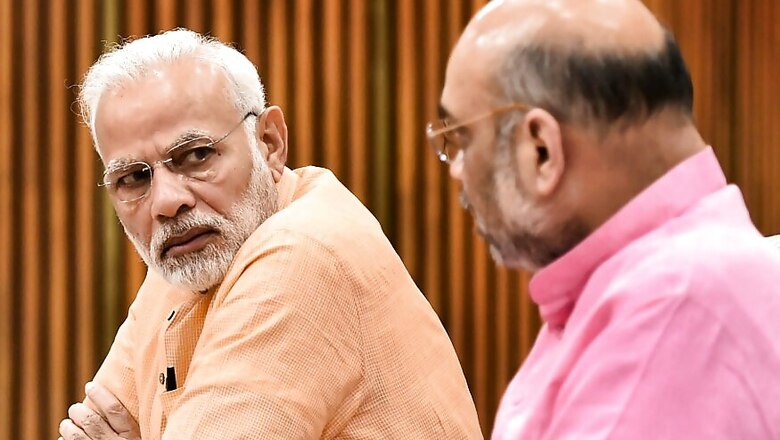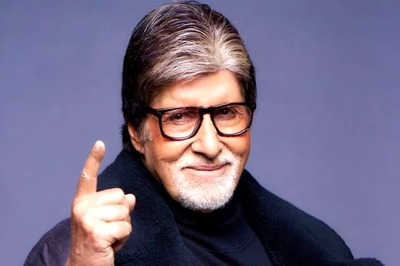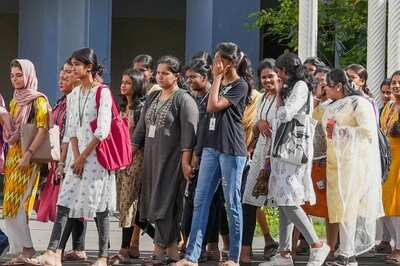
views
Over-speeding is fatal. So is overconfidence. The BJP top brass has learnt this the hard way in Karnataka as its efforts to install a government there not only floundered, but have coalesced their detractors — the Left and the Right, the regional and the national — at a time when the Lok Sabha elections are not far.
The BJP strategy to quickly install the party's government in the key southern state has given a boost to the badly divided opposition to close ranks for diverse reasons, much to the shock of the ruling party which had its way in Goa, Manipur and Meghalaya despite not emerging the single-largest party.
While patience is key in politics, the BJP’s attempt to take on the Congress and regional parties simultaneously in a bid to become a pan-India party before the general elections next year, has met with stiff resistance.
Aggressive expansionist moves are fraught with risks of political isolation to the extent that is has forced the Rahul Gandhi-led Congress to shake off the ‘NGO mindset’ to seek power wherever possible.
In the current political dynamics, the BJP juggernaut is bringing the rival parties together and they will remain united at least till the Lok Sabha elections in 2019.
Barring the Shiromani Akali Dal, no regional party is seen trusting the BJP, not even the Shiv Sena.
While the RJD, NCP and DMK have already moved closer to the grand old party, the Samajwadi Party and the BSP, too, have no reservation in working with Rahul Gandhi.
As far as the Trinamool Congress is concerned, Rahul Gandhi will have to take a call on whether to go with Mamata Banerjee or the Left Front in West Bengal.
The only exception to this developing camaraderie could be seen in Telangana as the Congress remains the prime challenger to the K Chandrashekhar Rao-led TRS.
In Andhra Pradesh, with the opposition space now firmly occupied by Jaganmohan Reddy, the question is whether the TDP and the Congress can work together at the national level.
This means Prime Minister Narendra Modi will have to ward off a tough challenge from the regional parties and the Congress in eight major states — Uttar Pradesh, Bihar, Tamil Nadu, West Bengal, Maharashtra, Andhra Pradesh, Telangana and now Karnataka — irrespective of whether the proposed front will have a leader or whether it remains leaderless.
This is because regional parties influencing politics in these states do not know whether their political space will be protected in the Narendra Modi-led NDA.
Therefore, the Karnataka elections have sent out a clear message to the BJP and the Congress that they cannot aspire to get power at the Centre without the regional parties.
A political commentator put it aptly, contending that the Karnataka mandate has put everyone in a bind. “There are no clear-cut winners, though there is an obvious loser — the Congress. The mandate can be easily construed as being decidedly against the Congress, even though the party’s popular vote share has gone up. Yet, it would be quite a stretch to suggest that the BJP has earned a clear-cut right to rule the state when it has polled 1.8% less than the Congress.”
But politics is not a static game. The power politics in Bengaluru will soon be converted into the issue of power in New Delhi. The post-poll alliance between the Janata Dal (Secular) and the Congress has thrown up an issue that can provide a glue to non-BJP parties to come together. ‘If you fail to fight unitedly, you will be finished one by one’ goes the message to the detractors of Narendra Modi and Amit Shah.
Developments in Karnataka will compel Narendra Modi and Amit Shah to re-do their electoral arithmetic.
Rahul Gandhi has realised that 2019 could be a different ball game altogether notwithstanding the fact that he and his party are rooting for the Prime Minister’s post.
The BJP has brought the Nitish Kumar-led Janata Dal (United) back to the NDA and is friendly with Jaganmohan Reddy’s YSR Congress, which is mainly confined to Andhra Pradesh. But these parties and the current allies like Ram Vilas Paswan’s LJP, Upendra Kushwaha’s RLSP and others know that they are marginal players while the AIADMK, the Biju Janata Dal and the AAP have yet to decide where they stand.
The Shiv Sena has so far remained consistent in its opposition to the BJP despite sharing power with it at the Centre and in Maharashtra. But if Narendra Modi walks two steps forward and accommodates the Shiv Sena by contesting seats either equal or lesser than the Sena in the Maharashtra Assembly polls, the picture could be different in the Lok Sabha elections.
The trust deficit between the BJP and its oldest ally in Maharashtra has only grown in the last four years.
The dramatic developments in Karnataka have stirred the political pot. It would be naïve and premature to assume that 2019 Lok Sabha elections would be a redux of 2014.
After Karnataka, Delhi could see losers emerging as winners in the post-poll game.
In politics, as in life, change is the only constant.
(The author is a senior journalist. Views are personal)




















Comments
0 comment